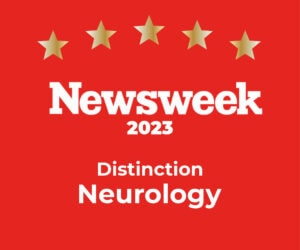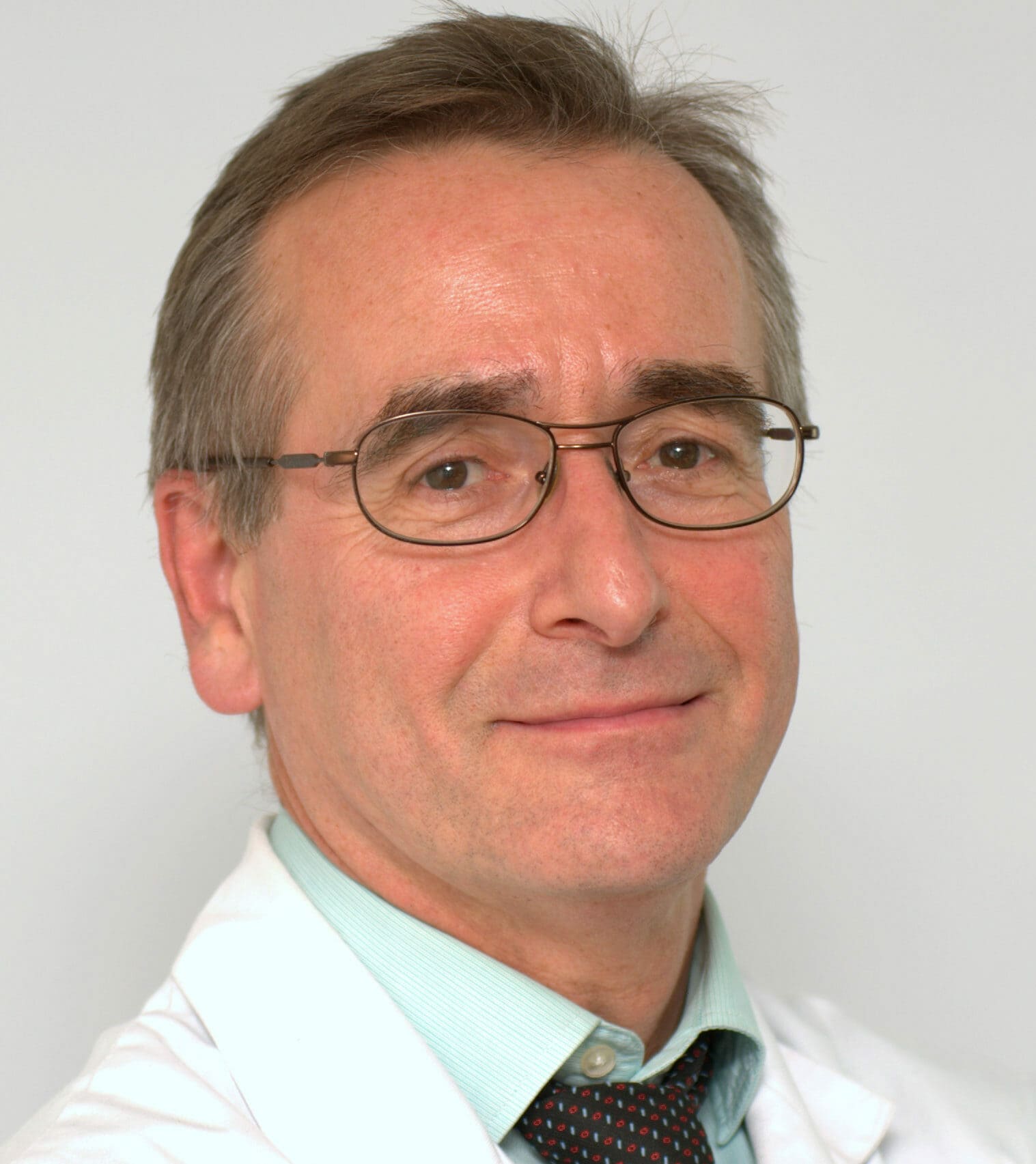Neurology and Neurovascular
 Neurology is the medical speciality that deals with organic diseases of the nerves. Therefore, it is completely different from psychiatry, which deals with mental illness (depression, anxiety, etc.).
Neurology is the medical speciality that deals with organic diseases of the nerves. Therefore, it is completely different from psychiatry, which deals with mental illness (depression, anxiety, etc.).
As nerves are present in all parts of the body, neurology encompasses a wide range of diseases that can affect the brain, spinal cord, peripheral nerves or muscles.
The origin of these diseases can be multiple :
- vascular (stroke due to cerebral thrombosis or haemorrhage, etc.)
- neurodegenerative (Parkinson’s, Alzheimer’s, amyotrophic lateral sclerosis (ALS), etc.)
- inflammatory (multiple sclerosis, some peripheral neuropathies, etc.)
- tumour
- toxic or iatrogenic (related to different treatments)
- genetic or malformative
- infectious
- traumatic (head trauma, etc.)
Patients with symptoms such as paralysis, abnormal movement (tremors or other), epileptic seizures, headaches, partial loss of sensation, loss of consciousness, walking or balance disorders, memory or language disorders, confusion, etc., are all treated at the department of neurology and neurovascular diseases of the Hospital.
In addition to a solid team of neurological doctors completed by 2 designated nurses, 2 advanced practice nurses (stroke, epilepsy), and rehabilitators (physiotherapists, speech therapists, neuropsychologists, occupational therapists), the department relies on a very comprehensive technical platform providing radiological (MRI and CT scans), cardiological (cardiac and vascular ultrasounds), and neurophysiological (electromyography (EMG) and electroencephalography (EEG)) examinations related to these diseases.
Key figures
- 4390 stays per year
- Over 1000 strokes treated per year
- Over 2000 EMGs performed per year
- 1 neurovascular intensive care unit with 12 beds
- 1 post-stroke consultation
- 20 neurologists
The main diseases treated
Techniques used
- Brain scanner
- Brain and medulla MRI
- Lumbar puncture
- Electroencephalogram
- Electromyogram and potential readings
- Neuropsychological survey
- Nerve and muscle biopsies
